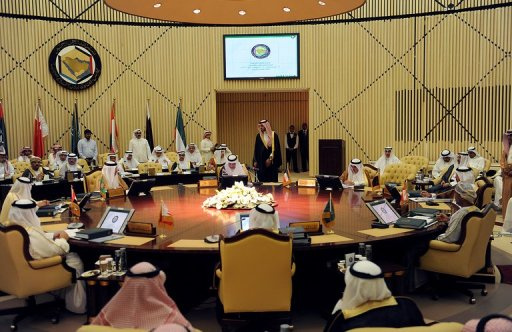Bahrain-Saudi Arabia Union
A Hasty Move to Strengthen the Occupation

It should be mentioned that, at the present time, it is only Saudi Arabia which is eager for this union, and so far, no other country in the Persian Gulf Cooperation Council has showed interest in this matter. Moreover, since almost a year ago, the Saudis have been speaking on behalf of the Bahrainis, and due to the role they have played in supporting the Al-Khalifa family against the people of the country, they allow themselves to propose such ideas on their behalf as well. In the beginning of 2011, the Saudis proposed a unity plan for eight monarchies, i.e. the six countries of the Persian Gulf Cooperation Council plus Morocco and Jordan. This plan was so hasty and immature that it was rejected right away. The King of Morocco followed a more reasonable path and held free elections, before the arrival of revolutionary waves, and entrusted the government to moderate Islamists (the Muslim Brotherhood). In Jordan, public opinion and opposition parties, which are strongly influenced by the atmosphere of the Arab revolutions, did not welcome this idea. But why does Saudi Arabia resort to such measures?
There is no doubt that these plans are responses to the waves of popular protests and indicate Saudi Arabia’s fear of arrival of these waves onto Persian Gulf beaches and against the Arab monarchies. In the Saudis’ view, if the domino of the fall of dictatorships reaches these kingdoms, no force will be able to stop the ensuing developments and they will lead to their loss of power. Some Saudi analysts say that the idea of unity is a reaction to the security rift created following the withdrawal of US forces from Iraq. In their opinion, this rift prepares the ground for a greater role to be played by Iran. But this claim is baseless. US forces have left Iraq, but they are still present in southern countries of the Persian Gulf including Bahrain, Qatar, the UAE, Kuwait, as well as in Persian Gulf waters. It is obvious that Arab countries of the Persian Gulf are completely dependent on the West for their internal and external security. Therefore, the answer to the question of why Saudi Arabia resorts to these ideas is not the security rift created by US forces’ withdrawal from Iraq, but rather the fact that Saudi Arabia is the most concerned country regarding the future of traditional Arab regimes. In the Saudis’ view, the unity of six or eight monarchial countries strengthens the position of anti-revolutionaries and traditionalists against reformists and democracy-seeking people.
But another question which can be raised is how prepared are the grounds for the success of this idea? The Persian Gulf Cooperation Council is not a harmonious and similar-minded council. The idea of unity can be the pinnacle of cooperation between a few countries. During the past three decades, the Persian Gulf Cooperation Council has not been able to reach an acceptable level of cooperation regarding political, economic and particularly security issues. At the security level, there has been no cooperation among the six member countries, except a theatrical force called the “Island Shield”. Therefore, the discussion of unity is not the natural consequence of cooperation development. On the other side, besides the rulers of Bahrain who feel threatened, none of the other states has welcomed this idea, for their fear of Saudi dominance is not any less than other threats, if it isn’t more.
As for Bahrain, it should be said that unity of a small country, with an area of 700 square kilometers and a very weak economy dependent on foreign assistance, with a country with more than two and a half million square kilometers and as the largest oil exporter in the world, has no other meaning but the swallowing of the small country by the bigger one. Since the start of 2011, Saudi Arabia has resorted to the use of force in order to suppress the people's revolution in Bahrain. In March 2011, the Saudis dispatched their military to Bahrain. More than one year has passed since Saudi Arabia has occupied Bahrain; nevertheless the people's revolution there has not stopped. The first Saudi idea on the speedy suppression of protests did not materialize. They have now considered another hasty solution and are contemplating the idea of unity.
Because of its social and cultural structure, Bahrain cannot be part of the closed Saudi society. On the other hand, Bahrain has been host to the U.S. Fifth Fleet for more than sixty years. In order to swallow Bahrain, Saudi Arabia would also challenge the Americans. If the unity between Bahrain and Saudi Arabia is the first step towards unity among GCC members, then other Council members, namely Qatar, Kuwait, the U.A.E. and Oman, will certainly be among opponents of this idea. Despite geographical continuity and commonalities existing among GCC members, the differences among them are not few. Most of these countries have unresolved territorial issues with Saudi Arabia. The U.A.E., Oman, Kuwait and Qatar are among countries that still have not resolved their territorial disputes with Saudi Arabia.
The idea of unity becomes meaningful when these countries can solve these problems and, as a prerequisite for unity, conclude their discussions on economic, political and social issues in a complementary manner. Still, GCC members have not resolved their differences on less-challenging issues, such as a single currency and customs unity. Therefore, there will not be much chance for the success of the idea of unity among GCC members.

